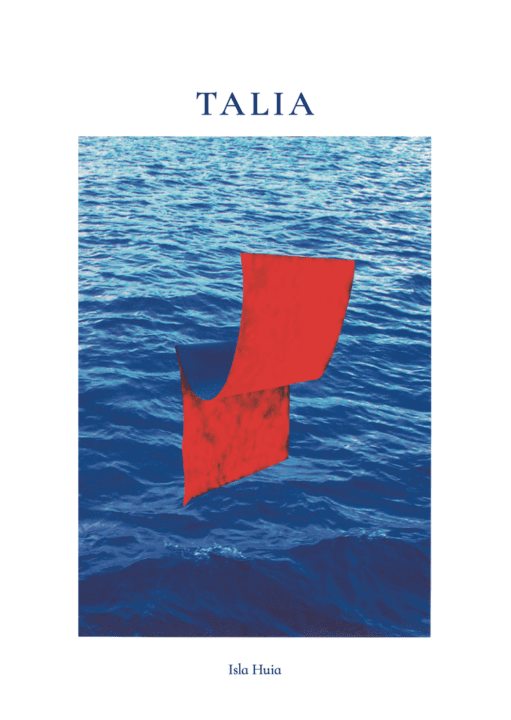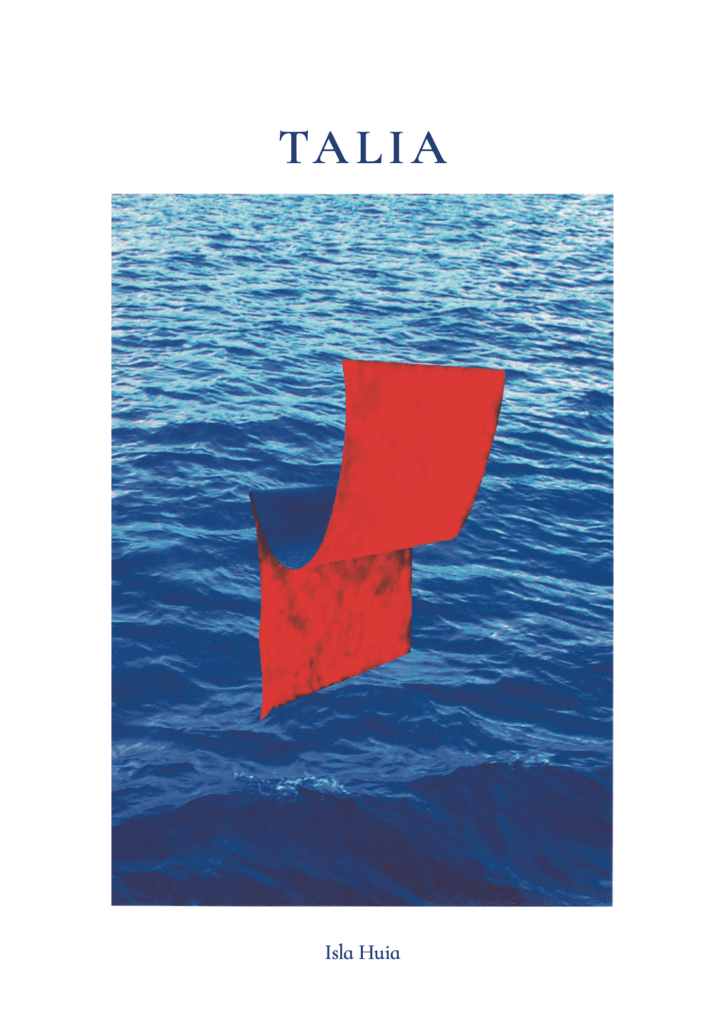Talia

Talia by Isla Huia. Dead Bird Books (2023). RRP: $30.00. PB, 87pp. ISBN: 9781991150639. Reviewed by Ariana Tikao.

Talia is Isla Huia’s (Te Ātihaunui-a-Pāpārangi, Uenuku) debut poetry collection published by the Auckland-based indie publisher Dead Bird Books. It consists of 35 poems full of pūrākau, of fascinating images, of our atua Māori, and people – alive and dead. Huia has dedicated the book to her friend who died, the book’s namesake Talia. A few of the poems deal with processing grief, yet they are still full of colour and sensation. Huia represents equally te kauae ruka and te kauae raro, the celestial and the earthly, and the result is a both heady and embodied experience. This book feels like nourishment.
The poems are grounded in the now, with wry perceptions including the poet as observer in ‘pegasus’ (p.7):
i have sat in the car
for two hours
in which the earth has
been slung, mid orbit
the rain has melted from
violence to mild oppression
and two people have used
the public toilets
I have just moved back to my home town of Christchurch, also where Huia is based, and reading Talia feels like a homecoming of sorts, with poems so grounded in place such as ‘wetlands’ (p.1), ‘taiora’ (p.6), and ‘pegasus’ (p.7) which describe being in local places but always with a unique slant. ‘wetlands’ is the first poem in the collection and sets the scene of Christchurch with it’s social and geological stratifications featuring the ‘richest boys in town’ chanting ‘my dad is your dad’s boss’ (p.1) and a motif of elements that identify where the writer fits within the city with a repeated line ‘mine is…’ including ‘mine is the city that smells like shit when the wind hits’ (p.2). Although I’m loving being back, one aspect of the city that I struggle with is the obsession with what school one went to. It’s something that is asked of strangers, particularly by people who are at the wealthier end of the spectrum to suss out whether you are ‘one of them’. I’ve been riding my bike by Christchurch Boys High School recently and the boys, as they walk in packs outside the school, seem like me to those who chant in Huia’s poem. They sometimes say ‘hello’ or ‘kia ora’ to me (if they notice my moko kauae) as I’m whizzing past on my bike, but it never feels like they are addressing me to be polite, but more as a strange sense of entitlement. In ‘wetlands’, Huia refers again to the chanting boys saying: ‘when they score a try, what I’m saying is – try harder’ (p.1).
There are many connections in Talia to whenua, whakapapa, bones, mountains, moana, the sun, and at times the body in relation to the natural world, as in ‘that māori cultural thing of literally knowing this’ (p.72):
sometimes i watch the mountains and
it’s so big, the surge, the truth of them
that i gag (p.72)
Huia’s poem ‘karakia’ (p.12) uses the form of a karakia starting with ‘me inoi tātou’ (which translates as ‘let us pray’) and goes on to list a whole lot of wishes, some of which are pretty funny, such as:
i wanna go to yoga and respirate through
alternative nostrils, humming until my
third eye cracks up, laughing (p.13)
Another poem that speaks back to Christchurch’s elite and colonial history is ‘god-ly’ (p.24) in which she addresses the ‘founder of Canterbury’ John Robert Godly, in statue form. I heard Huia recite this at the 2023 WORD Festival, in the Unruly Histories event at the Christchurch Arts Centre/Te Matatiki Toi Ora. It has an irreverence and humour but also a dark twist in its opening lines:
godly, you’re standing awful casual up there
warmer layers slung in your crook
lookin’ like your foot wants to accelerate something
or stand on something’s neck (p.24)
The suggestion that his foot wants to accelerate something makes my brain sizzle. What is it that he might want to accelerate? Ushering in the ‘first four ships’? Setting up a lil England at the bottom of the world? Or his exit from here after two years of domicile?
And the line ‘or stand on something’s neck’ reminds me of the case of the American police officer kneeling on George Floyd’s neck for over 9 minutes in Minneapolis in 2020, causing asphyxiation and death. His plea ‘I can’t breathe’ became an important phrase for the Black Lives Matter movement. I’m not sure if that was the poet’s intention (to refer to that particular tragedy) but for all of the specificity of the works in this collection being very much of this whenua, there is a wider relevance and connection to being in the present, and of this world and the wider challenges we face.
Huia pays tribute to her many aunties including in the poem ‘isolation hotel’ (p.43) dedicated to the FIKA collective, who have nurtured and supported her writing. This collection is such a generous offering, and I know I will keep going back to it for more re-reads, and each time will see more of its depth and breadth. He mihi nui ki a Isla i tēnei mahi whakahirahira. Ka mau te wehi!
Ariana Tikao is a musician and writer who was awarded as a 2020 Arts Laureate by the Arts Foundation of New Zealand. Her work explores her Kāi Tahu heritage and mana wahine. She is a 2023 Ursula Bethell Writer in Residence at the University of Canterbury.